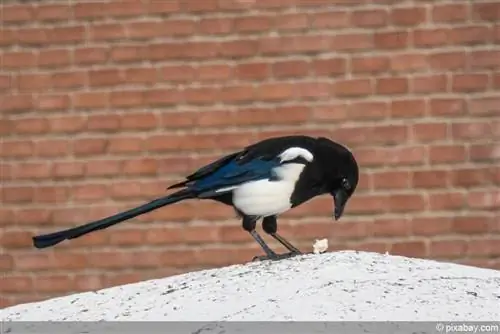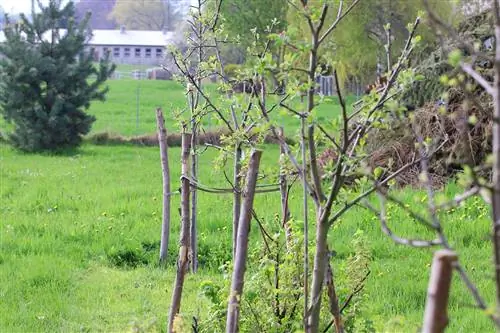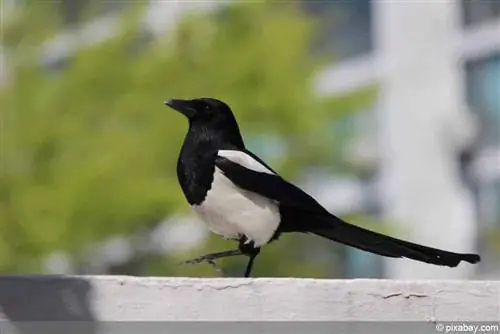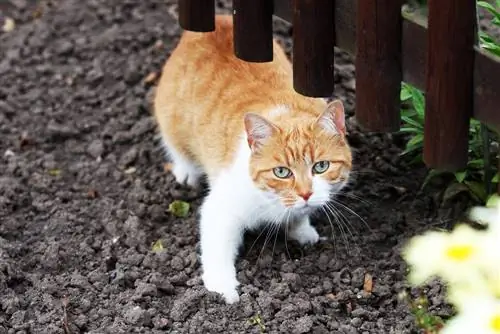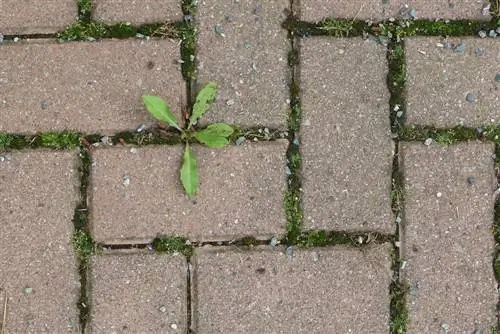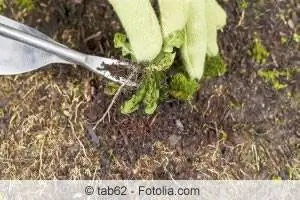- Author admin caroline@plants-knowledge.com.
- Public 2023-12-17 03:39.
- Last modified 2025-01-24 12:45.
It's easy to talk about a magpie plague when several of the black and white birds appear in a garden. Their bad reputation persists and so they are seen as pests that urgently need to be driven away or even killed. This is by no means necessary or even sensible in every case. In addition, many methods are not allowed.
Plague?
Magpies are often viewed as a pest because they occur in larger groups. In fact, the number of corvids overall is rather small. If there is a group of magpies in your own garden, it does not necessarily mean that there is a plague. The birds often move on anyway when conditions change. So it is not automatically necessary to hunt, poison and kill them.
Beneficial or pest?
Magpies have a bad reputation that sticks with them and unfortunately often precedes them. They are considered pests that kill or at least drive away songbirds, rob their nests and also cause damage to plants. As carrion and insect eaters, magpies are certainly useful and it's worth knowing their habits:
Nutrition
Magpies can eat smaller songbirds and their eggs, but they feed mainly on insects, spiders, carrion and garbage. So they are also quite useful in the garden, important for ecological balance and do not cause any damage to plants.
Bird enemies
Magpies are often associated with driving away or even killing songbirds and robbing their nests. Although these cases can occur, they are significantly rarer than is often claimed. In addition, the songbird populations can easily recover from the attacks of the magpies. On the other hand, the disappearance of songbirds and the rapid appearance of magpies are in most cases due to human intervention and changes in the environment - and not to the corvids.
Damage
Compost heaps, open or damaged garbage cans and insect-rich gardens represent a buffet for the magpies. They do not mess with seeds and plants and therefore do not cause any damage to the garden. On the contrary, they help keep insects at bay and remove carrion and waste.
Prevention
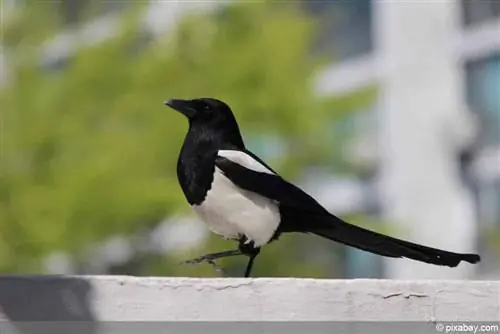
If you know how magpies live, you can easily prevent them from appearing in the garden. The following measures are suitable for this:
Garbage and compost
An open compost heap or broken garbage can can attract magpies. If such food sources are covered, the garden immediately becomes less attractive for the corvids and there is no need to expect a “magpie plague”. Closed composters and intact garbage cans are therefore simple but effective preventive measures.
Predators
Cats, dogs and birds of prey keep magpies away. If you don't own cats or dogs, you can use a few tricks to help yourself. Animal hair, recorded animal noises and figures create an initial deterrent effect. However, the intelligence of parents should not be underestimated. If they notice after a while that the predators are never in the garden, they will see through the artificial defense maneuvers. It would be ideal if cats and dogs occasionally roamed through the garden.
Open sky and sparse trees
The figures of birds of prey can seem intimidating at first, but they must also be visible in the garden or at least have optimal conditions for hunting. This includes not offering the magpies any hiding places. Regularly trimmed, light trees and an overall free, open garden design are ideal for this.
Nest boxes
To protect songbirds and their nests, appropriate nesting boxes can be hung in the garden. The entrances to these boxes should be sized so that the songbirds can easily get in, but the magpies cannot fit through. This offers different bird species the opportunity to live together in a garden.
Hunting
If there is a supposed plague of magpies, hunting the birds makes sense. However, hunting is only permitted under certain conditions and at certain times. In addition, the legal guidelines can vary from state to state. It is therefore necessary in any case to contact a local hunter. On the one hand, this person can provide information about the legal basis and, on the other hand, intervene in a regulatory manner if necessary. Nature and animal protection associations are also available as an alternative source of information and can provide information and recommend helpful measures if necessary.
Private individuals, however, are prohibited from shooting the birds or hunting them using other means.
Poison
To nip the magpie plague in the bud, poison seems to be an option. The corvids are “caught” while they are eating and the number of supposed pests is reduced. However, just like hunting the birds, poisoning them is prohibited. There are also some risks associated with this measure. The greatest danger is that the poisoning cannot be controlled. It is impossible to control whether a magpie, a dog, a cat or perhaps even a child consumes the poisoned food. Even if the poison is released in higher areas, other birds or squirrels could also be accidentally killed.
Destroy nests
This measure seems the easiest. Anyone who destroys a magpie's nest and simply digs it up has very little effort. The animals do not need to be hunted or poisoned with a potential danger to other living beings. However, just like the methods already mentioned, digging up or destroying nests is prohibited. The birds, their offspring and their nests must remain undamaged and undisturbed. Even deliberately keeping magpies away from their nests can be punished.
Killing
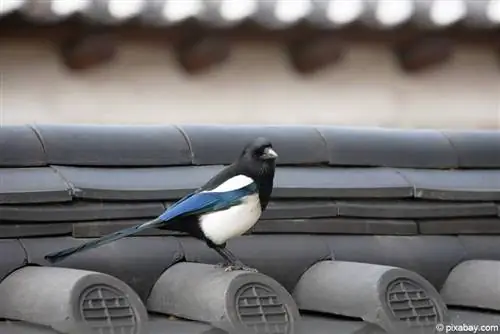
Whether by hunting, trapping or poisoning, killing magpies is prohibited for private individuals. Under certain conditions the population can be reduced, but this should be done professionally to ensure legal protection and to protect the animals and the environment. Again, you should either involve the local hunter or ask a nature conservation association. They are familiar with the regional guidelines and the legislation of the federal state and can therefore proceed accordingly.
Basically, however, the goal should not be to eliminate the magpies, to treat them with poison or to ward them off in any other way. If you don't want the birds in your garden, you can prevent them accordingly or make your own greenery less attractive as a result of a supposed magpie plague. However, it should be clear that, as mentioned, corvids are neither dangerous nor harmful in themselves, but do serve a very useful purpose. Anyone who encounters them in their own garden will not be disadvantaged by their appearance.
Legal Guidelines
The magpies can be shot depending on the federal state and time of year. However, a firearms license is not enough for this. Anyone who ignores these laws must expect severe pen alties. We therefore strongly recommend that you do not use poison or weapons against the birds, but rather seek appropriate professional advice and involve a hunter or nature conservation association. This is the only way to ensure that legal action is taken. This is important for several reasons. On the one hand, because this ensures your own legal protection. On the other hand, because it also prevents damage to nature.
It is possible to interpret the relevant legal texts yourself. However, these are very complex and sometimes seem contradictory. Therefore, it is sometimes difficult even for lawyers to find a clear interpretation. In addition, the laws are different in every federal state. It is therefore hardly possible for laypeople to make an informed decision and act with legal protection.

